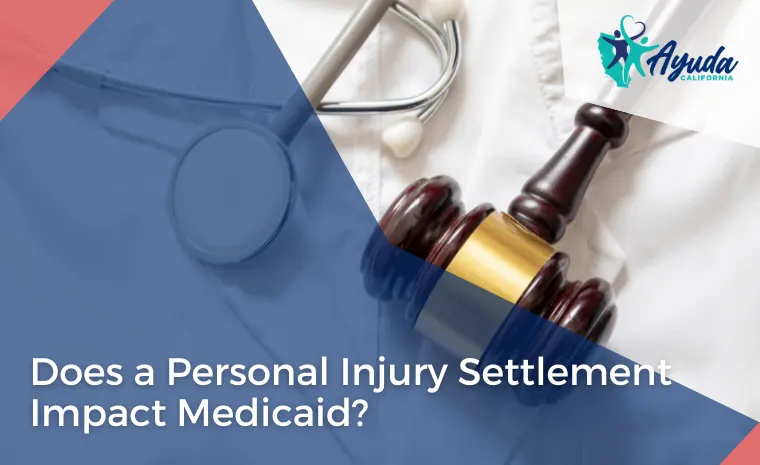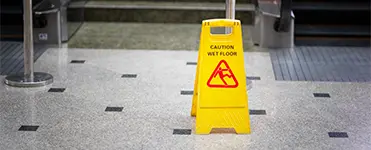After being affected by an accident, victims may be struggling with serious injuries, high medical care costs, financial losses, loss of quality of life, and pain and suffering resulting from the incident. To recover their life and health, accident victims can file a personal injury claim and obtain a fair settlement. But how does a personal injury settlement affect your Medicaid benefits?
Medicaid is a joint federal and state program that covers medical costs and certain benefits not provided by Medicare; such as nursing home care and personal care services. Generally, individuals with Medicaid are not required to pay anything for covered medical bills. However, they may need to pay a small fee for certain items or services.
A personal injury settlement may affect an individual’s eligibility for Medicaid benefits, depending on the terms of the settlement and how it is paid out. In this article, we will discuss in detail what impact a personal injury settlement can have on Medicaid eligibility.
Who Is Eligible for Medicaid?
To be eligible for Medicaid, qualified individuals must have a monthly income that is at or below a certain level, which is determined by the state. In addition, there may be personal assets that an individual must meet in order to be eligible. Personal assets that may be considered in the eligibility determination may include cash, bank accounts, investments, real estate, and other property.
Medicaid Eligibility Criteria:
- Being pregnant
- Being the custodial parent or legal guardian of a child under 18
- People with disabilities, or those caring for family members with disabilities, are encouraged to apply
- People at least 65 years old (for similar Medicare programs)
As a guardian-relative of a child who is under the age of 21, you may be eligible for Medicaid assistance if you’re taking care of the child because the parents:
- Have died
- Do not live with the child
- Are incapacitated
- Are not employed
Medi-Cal, (the government benefits program for California) provides a core set of benefits, including hospital and health care, doctor visits, pregnancy-related services, immunization, and nursing home care. The Affordable Care Act mandates that all Medi-Cal healthcare plans provide Essential Health Benefits (EHB). These services are ten in total and encompass the following:
- Ambulatory services
- Emergency services
- Hospitalization
- Maternity and Newborn care
- Mental Health and Substance Use Disorder Services
- Prescription Drugs
- Rehabilitative & Habilitative Services and devices
- Laboratory services
- Preventive and wellness services & chronic disease management
- Pediatric services, including oral and vision care.

How Personal Injury Settlements Affect Medicaid
Personal injury settlement funds and Medicaid can be connected in several ways, depending on the case’s specific circumstances.
If a person is injured due to the fault of another party and receives a significant amount of settlement money or verdict, it may push their income or countable assets above the Medicaid eligibility threshold, resulting in a loss of benefits.
One key benefit of personal injury settlements is the option of a structured settlement. Rather than receiving a lump sum payment, the compensation is distributed over time, which can help injured individuals maintain their financial eligibility for Medicaid.
This approach mitigates the impact of the settlement on their income and assets, ensuring they receive the financial support they need while continuing to qualify for Medicaid.
In some cases, the injured person and their attorney may negotiate with Medicaid to reduce the amount of the recovery, based on factors such as the cost of litigation and the injured person’s future medical needs.
Overall, the connection between personal injury settlements and Medicaid can be complex and depend on the specific circumstances of each case. It is important for injured individuals to work with a skilled attorney who understands the potential impact of a settlement or verdict on their Medicaid eligibility and rights of recovery.
Medicaid Liens on Personal Injury Settlements
A Medicaid lien is a guarantee to a lien holder to recover medical costs associated with a personal injury, usually from an automobile accident. This is a legal claim placed on the property or countable assets of a Medical beneficiary. The lien allows the government to recover the cost of medical benefits that were paid out on behalf of the beneficiary.
For example, if an injured person receives Medicaid benefits for medical treatment, and they subsequently receive larger settlements for a personal injury lawsuit, Medicaid may place a lien on that settlement to recover the cost of benefits provided.
From getting the medical lien for the victim to agreeing on the settlement amount that needs to be covered, Medicaid liens are a complex process. That’s why it is best to have an experienced attorney by your side that can navigate your legal process with total honesty.
Exceptions to Medicaid Liens
There are some exceptions to Medicaid liens in personal injury cases, which may vary by state and circumstances. Some common exceptions may include:
- Hardship waiver: If enforcing the Medicaid lien would create an undue hardship for the injured person or their family, Medicaid may be waived or the lien amount reduced.
- Minimal recovery: If the injured person’s recovery from the responsible party is minimal, Medicaid may not pursue a lien. What constitutes a “minimal” recovery varies by state. For example, if the person has just a little scratch on his arm as a result and no more injuries that needed medical treatment, that can be considered a minimal recovery.
- Medical expenses not related to the injury: Medicaid may only recover the cost of medical care that is related to the injury caused by the responsible party. If the injured person received Medicaid benefits for unrelated medical expenses, those expenses may not be subjected to the lien.
- Special needs trust: When disabled individuals receive a settlement or judgment from a personal injury case, Medicaid may have a right to recover the cost of medical care from any settlement or judgment that the injured person receives from the responsible party. However, if the settlement or judgment is placed in a special needs trust, Medicaid may not be able to place a lien on the trust. A special needs trust is a legal arrangement designed to provide financial support to people with disabilities or special needs.
- Qualified Settlement Fund (QSF): A QSF is a type of trust that can be established to hold settlement funds in personal injury cases. When a QSF is established, the settlement funds are not paid directly to the injured person or their attorney. Instead, the funds are placed in the QSF, and the injured person can use the QSF to pay for medical expenses, attorney fees, and other expenses related to the case.
Having a personal injury lawyer that is well-versed in the Medicaid program and its relationship with personal injury claims is essential for protecting one’s rights and securing a fair settlement. Medicaid liens tend to be complex, thus making knowledgeable legal advice indispensable.
How to Protect Medicaid Benefits During Personal Injury Settlements
If you are receiving Medicaid benefits, and you are involved in a personal injury settlement, it is important to take steps to protect your benefits. A Medicaid planning attorney can help you navigate the complexities of the Medicaid system and ensure that you receive the maximum benefit from your settlement while preserving your eligibility for Medicaid.
Here are some steps to consider:
Hire a Medicaid Planning Attorney
Hiring an attorney who specializes in Medicaid planning can be crucial to protecting your benefits. Medicaid planning attorneys are knowledgeable about the Medicaid system and can provide legal counsel on the best strategies for preserving your benefits while receiving the entire injury settlement.
Consider Structured Settlements
Structured settlements can be an effective way to protect your Medicaid benefits while receiving a personal injury settlement. This is a type of settlement in which you receive payments over time, rather than lump sum payments, and can be advantageous because it can prevent you from losing your Medicaid benefits due to a sudden influx of cash.
Negotiate the Settlement
Your Medicaid planning attorney can negotiate with the other party’s attorney to structure the settlement in a way that preserves your eligibility for Medicaid. This can involve negotiating the amount of the settlement or the way in which the settlement is paid.
Receiving Settlement Payments in Installments
Rather than a lump sum, you can receive split payments over time, which can help ensure that you do not lose your Medicaid benefits due to a sudden influx of cash. Receiving personal injury settlement payments in installments is a great strategy to preserve your Medicaid benefits.
Get Help from Award-Winning Attorneys
Ayuda California is here to help. We are dedicated to aggressively representing personal injury victims and ensuring that they are receiving the fair compensation to which they are entitled.
We have a trusted network of medical professionals that work with us to provide the quality medical care you deserve. Our award-winning attorneys are prepared to build your case and ensure your Medicaid benefits are preserved, and you receive all the money you need to heal and recover.
We speak English, Spanish, and Filipino. Available 24/7.


















